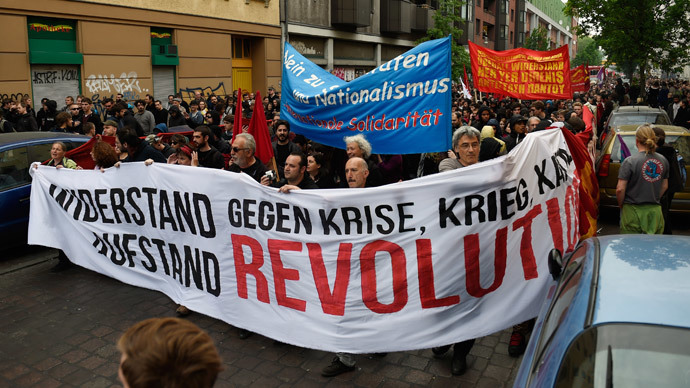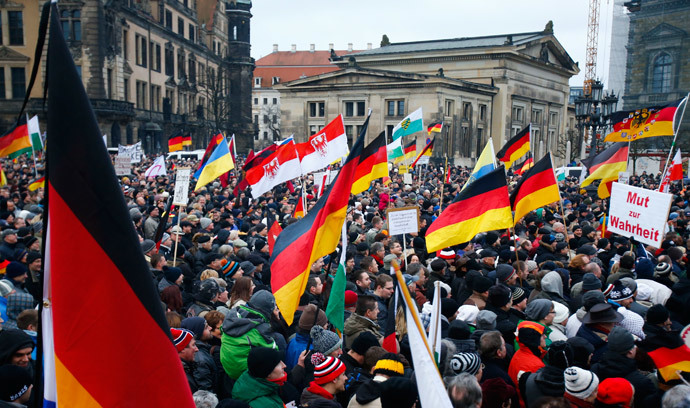20% of Germans want revolution, majority say democracy 'isn't real' - study

Twenty percent of Germans believe that their current living conditions won't be improved by reforms and only a revolution can reshape society. That's according to a study released by the Free University of Berlin.
The study, titled "Against the state and capital - to revolution"
focused on opposition to capitalism, fascism and racism, and
concluded that Germans are more left-wing in their attitudes than
previously thought. The challenge for the researchers was to analyze the core
structural similarities between right and left-wing
extremism.
Twenty-five years after the fall of the Berlin Wall, the
ideological divide between the former East and West Germany is
still marked, with left-wing ideas getting more support in
eastern Germany. According to the study, 60 percent of Germans
living in the east considered socialism to be a good idea,
compared to only 37 percent of residents in the west. Almost 50
percent said they had recently noticed increased surveillance of
left-wing dissidents by police and the state, while nearly
one-third of Germans fear that by spying on its citizens the
country may be sliding toward a dictatorship.
The multi-year research project was conducted under the federal program "Democracy initiative strengths." For the representative survey, almost 1,400 people were surveyed by polling firm Infratest Dimap.
READ MORE: ‘Ostalgia’: Politics meets playfulness to put 2 sides to Berlin’s Wall legacy
Twenty percent of respondents said they saw the rise of neo-fascism in Germany as a real danger, while 48 percent said they believe a deep-rooted xenophobia currently exists in Germany.

And a majority of Germans – 62 percent – said that German democracy isn't real democracy, because it's economy-driven.
READ MORE: ‘Anti-Islamization’ & ‘pro-tolerance’ activists march in Berlin (VIDEO)
Another claim in the study, led by Professor Klaus Schroeder, was
that there had been a clear spike in “left-wing violence” in
recent years, with police and right-wing extremists being the
most common targets.
An attack on a Leipzig police station in January may have been an
example of this far-left violent protest, Schroeder said. The
incident saw 50 hooded people attacking a neighborhood police
station, setting fire to a patrol car, throwing rocks, bottles
and paint bombs against the security glass. According to police,
the attack lasted just less than a minute, before the group
dispersed into the darkness.
Earlier this month, left-wing activists also appeared to be the
main suspects behind the vandalizing of posters for the Hamburg
local elections belonging to right-wing party AfD (Alternative
for Germany). AfD slogans included: "Stop Islamists" and
"Immigration needs strict regulation," the Local
reported.












